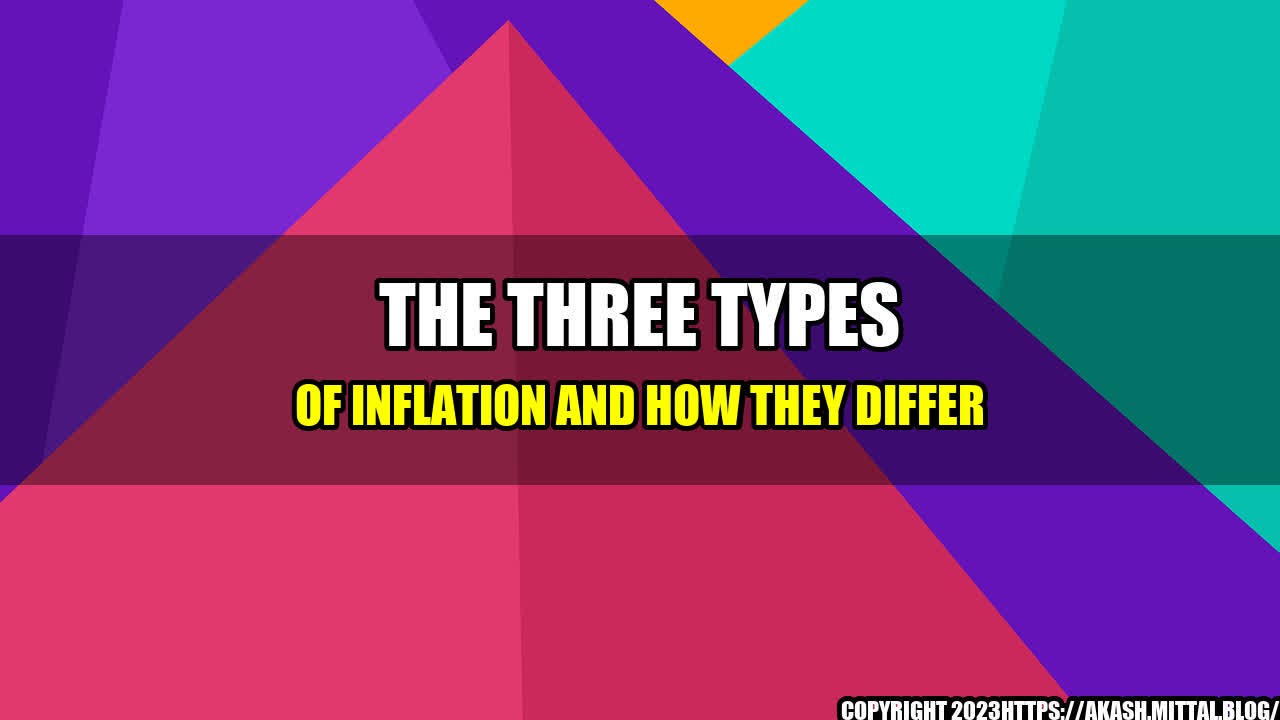
It was a busy morning at the grocery store. People were rushing to buy their daily essentials when a commotion caught my attention. In the corner of my eye, I saw an elderly lady holding a basket, tears streaming down her face. As I approached her, she explained that the prices of her regular groceries had increased, and she could not afford to buy what she needed. It was heartbreaking to see the effects of inflation on someone's daily life.
Inflation is the general increase in prices of goods and services over time. It is an economic phenomenon that affects individuals, families, and businesses worldwide. It reduces the purchasing power of money and, if not managed correctly, can cause a variety of economic problems. In this article, we will explore the three types of inflation and how they differ from each other.
Inflation can be classified into three types based on the cause of the price rise:
Cost-push inflation happens when the cost of production increases, causing businesses to increase their prices. There can be various reasons for the cost increase, such as increases in wages, raw material costs, or taxes. This type of inflation is related to the supply side of the economy, where the prices of goods and services increase due to the increase in production costs.
A significant example of cost-push inflation occurred in the 1970s when there was an increase in oil prices due to the oil embargo by the Organization of Arab Petroleum Exporting Countries (OPEC). This caused an increase in production costs for various industries that heavily relied on oil, leading to an increase in their product prices.
Demand-pull inflation happens when the demand for goods and services is more than the supply. This results in businesses increasing their prices to balance the supply and demand equation. This type of inflation is related to the demand side of the economy, where the prices of goods and services increase due to high demand.
A recent example of demand-pull inflation happened during the COVID-19 pandemic, where the demand for medical equipment and sanitation products increased rapidly, leading to a shortage of supplies. This created an increase in prices for these essential goods due to their high demand.
Structural inflation is a long-term type of inflation that happens due to fundamental changes in the economy. These changes can include shifts in the demographic, technological, or environmental factors, causing the economy to change its production patterns and behavior.
For example, structural inflation happened in Japan during the 1990s due to the aging population. As a result, the demand for social security and healthcare services increased, leading to an increase in prices for these services. This type of inflation is related to the changes in the economy's structure rather than any short-term events.
Inflation can have a profound impact on the economy and people's daily lives. Let's explore some quantifiable examples of inflation:
Inflation can have a detrimental effect on the economy and people's lives. Understanding the three types of inflation and how they differ can help us navigate economic challenges better. Here are some key takeaways:
Regardless of the type of inflation, its effects can be felt globally. We must prepare and manage inflation to mitigate its effects on individuals and businesses.
#inflation #costpushinflation #demandpullinflation #structuralinflation #economy #consumerpriceindex #USAinflation #gasolineprices #Indiainflation #CPI
inflation, cost-push inflation, demand-pull inflation, structural inflation, economy, consumer price index, USA inflation, gasoline prices, India inflation, CPI
Economy
Curated by Team Akash.Mittal.Blog
Share on Twitter Share on LinkedIn